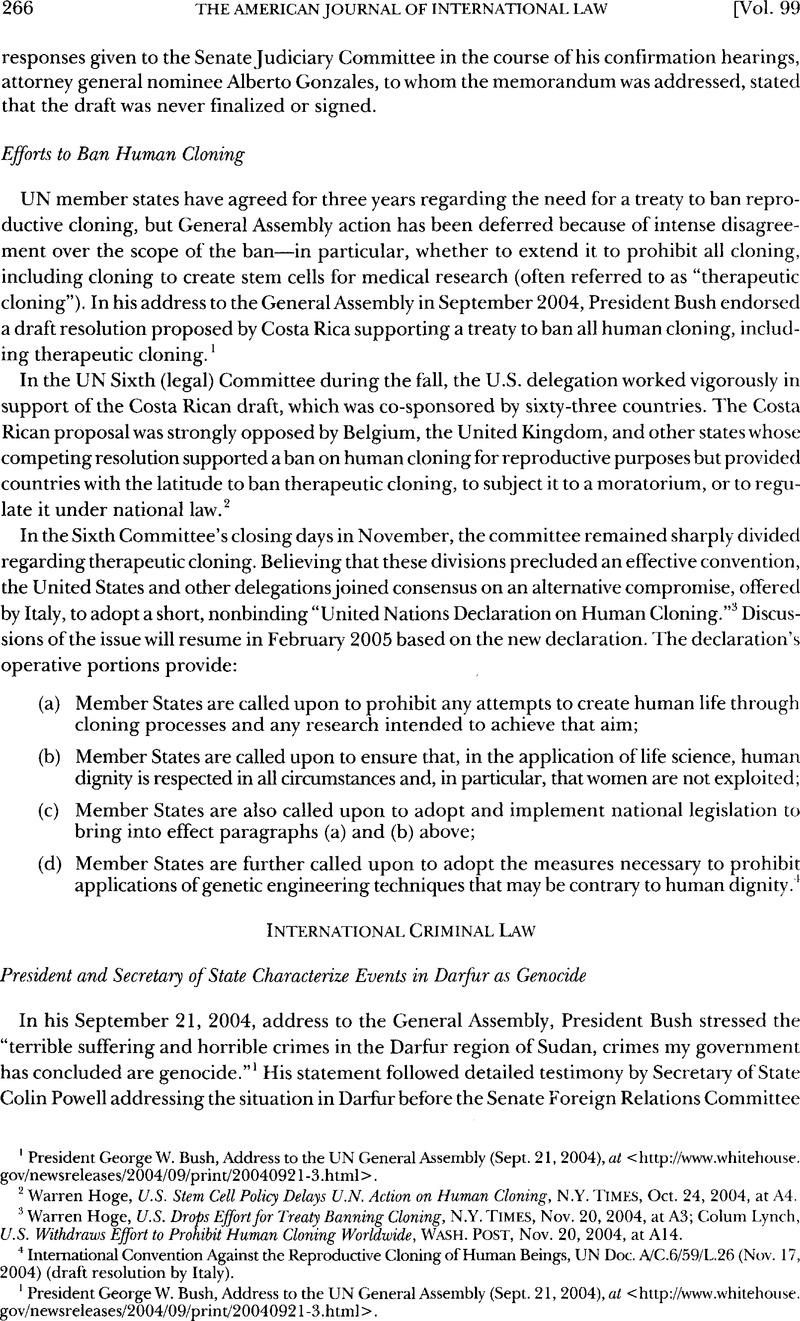Published online by Cambridge University Press: 10 March 2017

1 President George W. Bush, Address to the UN General Assembly (Sept. 21, 2004), at <http://www.whitehouse.gov/newsreleases/2004/09/print/20040921-3.html>.
2 Secretary of State Colin Powell, The Crisis in Darfur (Sept. 9, 2004)Google Scholar, at <http://www.state.gov/secretary/rm/36042.htm> (testimony before the Senate Foreign Relations Committee).
3 [Editor’s Note: Paragraph 12 of Security Council Resolution 1564, adopted September 18, 2004, requested the secretary-general to “rapidly establish an international commission of inquiry in order immediately to investigate reports of violations of international humanitarian law and human rights law in Darfur by all parties, to determine also whether or not acts of genocide have occurred, and to identify the perpetrators of such violations.” See Lynch, Colum, U.N. Puts Sudan Sanctions into Play, Wash. Post, Sept. 19, 2004, at Al Google Scholar. Pursuant to the resolution, Secretary-General Kofi Annan named a commission of legal and human rights experts in early October to report within three months. The commission is chaired by Antonio Cassese, former president of the International Criminal Tribunal for the Former Yugoslavia. Hoge, Warren, International Panel to Weigh Genocide Claim, N.Y. Times, Oct. 9, 2004, at A5 Google Scholar.
4 See, e.g., Diane, F. Orentlicher, Genocide, in Crimes of War: What The Public Should Know (Gutman, Roy & RiefFeds, David., 1999), available at <http://www.crimesofwar.org/thebook/genocide.html>>Google Scholar. On the U.S. conclusion that genocide occurred in Rwanda, see Sean, D. Murphy, Contemporary Practice of the United States, 96 AJIL 258 (2002)Google Scholar.